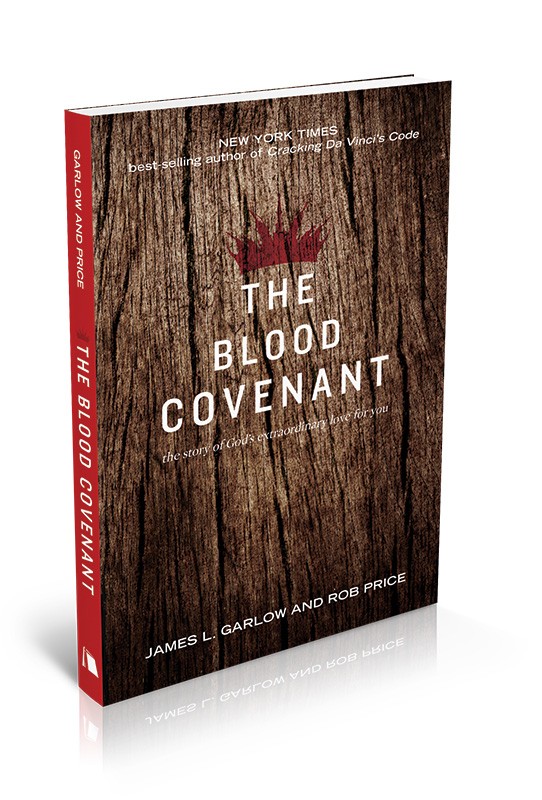The saying “the blood of the covenant is thicker than water” speaks to the profound strength of loyalty and brotherhood, often used to describe bonds stronger than even familial ties. While its exact origins are debated, this proverb resonates deeply with themes found throughout the Bible, particularly those emphasizing the importance of love, commitment, and community. This article delves into the biblical foundations of loyalty, exploring how scripture illuminates the concept of “blood covenant” and its significance in shaping relationships.
This exploration will examine key biblical passages that highlight themes of loyalty, delve into the concept of blood covenants as depicted in scripture, analyze the emphasis on family bonds and communal commitment, and finally, trace the origins and usage of the proverb itself.
Biblical Themes of Loyalty
The Bible is replete with stories and teachings emphasizing the importance of loyalty. From Abraham’s unwavering faith to David’s steadfast friendship with Jonathan, numerous examples demonstrate the value placed on faithfulness and devotion. Loyalty is not merely a passive quality; it involves active commitment, sacrifice, and unwavering support even in challenging circumstances.
One prominent theme is the covenant relationship between God and his people. This covenant, established through promises and agreements, demands unwavering loyalty from both parties. The Israelites were called to be faithful to God’s laws and commandments, while God promised to protect and guide them. This covenant serves as a foundational model for human relationships, highlighting the importance of mutual commitment and trust.
Another recurring theme is the call to love one another. Jesus emphasized this principle repeatedly, stating that “love your enemies” (Matthew 5:44) and “a new commandment I give you: Love one another. As I have loved you, so you must love one another.” (John 13:34). This radical call to love transcends familial ties and extends to all individuals, fostering a sense of unity and shared responsibility within the community.
Blood Covenant in Scripture
The concept of “blood covenant” appears throughout scripture, signifying a solemn and binding agreement sealed with the shedding of blood. While not always explicitly stated, this imagery conveys the gravity and permanence of the commitment involved.
In Genesis 15:9-18, God establishes a covenant with Abraham, requiring him to sacrifice an animal and walk through its divided pieces. This act symbolizes the seriousness of their agreement and serves as a visual representation of the blood bond that unites them. Similarly, in Exodus 24, Moses makes a covenant with the Israelites, sprinkling the blood of sacrificed animals on the altar and the people themselves, signifying their shared commitment to God’s laws.
These examples demonstrate how “blood covenant” served as a powerful symbol of unity, loyalty, and mutual obligation in ancient Israelite culture. The shedding of blood represented a profound sacrifice and a willingness to stand by one’s commitments, regardless of the consequences.
Family Bonds and Community Commitment
The Bible places significant emphasis on the importance of family bonds and communal commitment.
Within families, love, support, and loyalty are paramount. Parents are called to nurture and guide their children, while children are expected to honor and obey their parents (Ephesians 6:1-4). Siblings are encouraged to love and support one another, recognizing that they share a unique bond forged through common experiences and upbringing.
Beyond the family unit, the Bible emphasizes the importance of building strong communities based on mutual care and support. The concept of “neighbor” extends beyond immediate family and encompasses all individuals within the community. Jesus’ teachings on loving one’s neighbor (Luke 10:25-37) highlight the responsibility to show compassion and kindness to those around us, regardless of their background or social status.
The Phrase’s Origins and Usage
While no exact verse in scripture uses the phrase “the blood of the covenant is thicker than water,” its meaning resonates with biblical themes of loyalty, commitment, and the strength of chosen relationships.
The proverb likely emerged from ancient traditions where blood oaths were common practice, signifying a binding agreement sealed by sacrifice. Over time, the phrase evolved to encompass broader concepts of loyalty and brotherhood, emphasizing that bonds forged through shared experiences and mutual trust can often surpass even familial ties.
Loyalty vs. Watery Relationships
The proverb “the blood of the covenant is thicker than water” serves as a powerful reminder of the importance of cultivating genuine and enduring relationships based on loyalty, commitment, and shared values.
It contrasts these strong bonds with “watery relationships,” characterized by superficiality, lack of depth, and fleeting connections. While familial ties are important, they do not automatically guarantee loyalty or love. True loyalty is cultivated through shared experiences, mutual respect, and a willingness to stand by one another through thick and thin.
Conclusion
The concept of “blood covenant” and its associated themes of loyalty and brotherhood find deep roots in biblical teachings. While the exact origins of the proverb “the blood of the covenant is thicker than water” remain debated, its message resonates with scripture’s emphasis on love, commitment, and the strength of chosen relationships. By understanding these biblical foundations, we can gain a deeper appreciation for the importance of cultivating genuine and enduring bonds based on loyalty, trust, and mutual support.



